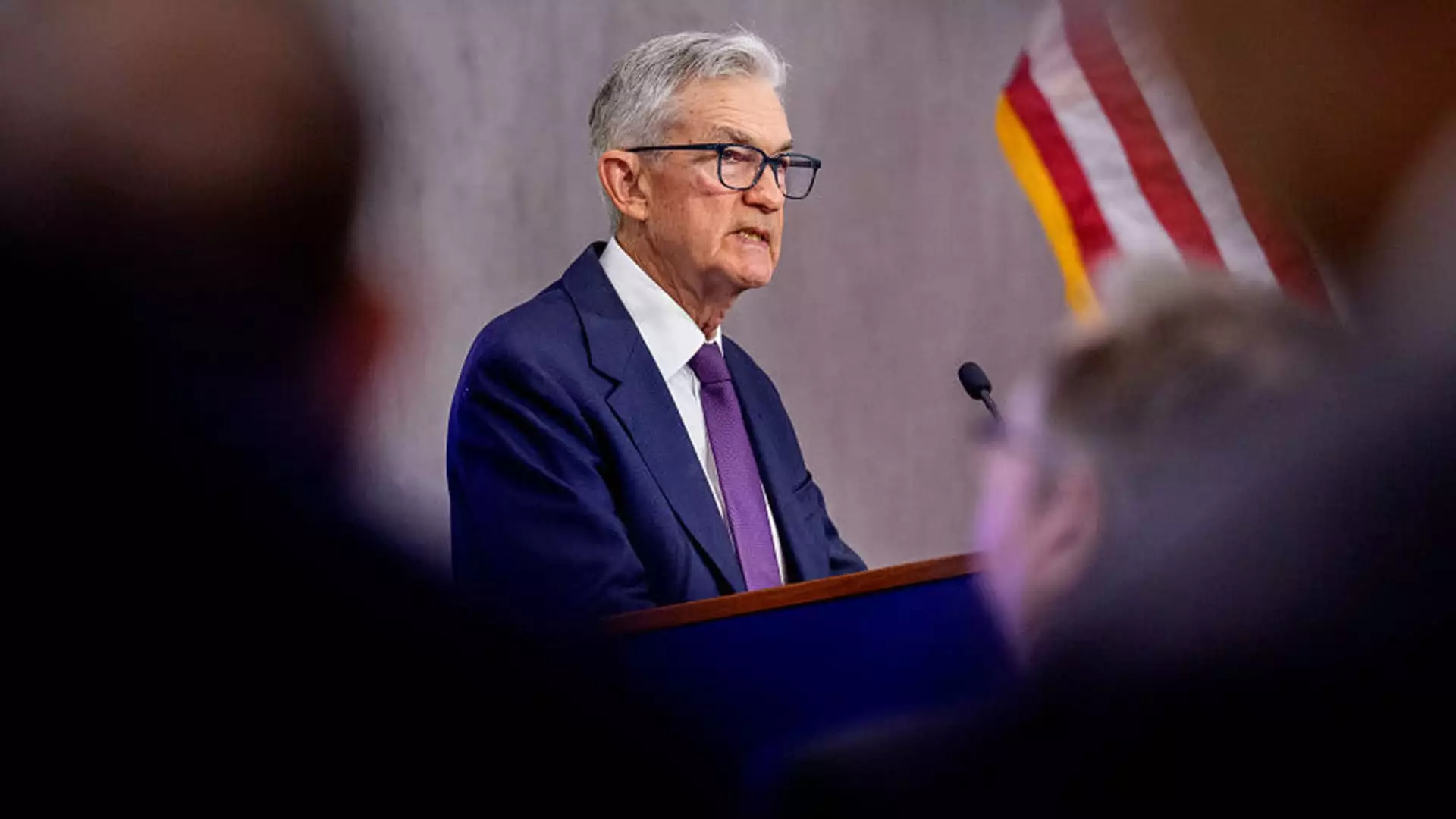In the often-chaotic realm of American economics, few episodes epitomize the strain between political aspirations and economic realities as vividly as President Donald Trump’s fierce crusade against Federal Reserve Chairman Jerome Powell. The president’s public demands for drastic interest rate cuts were underscored by alarm over an underwhelming employment report from ADP, reflecting a disturbing trend in the labor market. The juxtaposition of Trump’s furious insistence that Powell “must now LOWER THE RATE” against the backdrop of disappointing job growth surfaces critical issues surrounding the intersection of politics and economic policymaking.
Trump’s frustration is palpable and understandable. The recent ADP report revealed a disconcerting rise of merely 37,000 private sector jobs, starkly missing the anticipated figure of 110,000. Such a drop not only signifies a looming economic malaise but highlights a potential misalignment between the current economic indicators and the president’s agenda. This is not just a failure on the job creation front; it is a pivotal moment that could signal deeper systemic flaws within the economy that Trump’s administration is grappling with.
The Stakes of Monetary Policy
The battle between the President and the Fed highlights a crucial reality: monetary policy should not be dictated by political whims. Powell’s steadfast approach to maintaining interest rates is rooted in economic data and long-term stability rather than immediate political pressures. Trump’s demand for a radical shift in policy not only places Powell in a precarious position but undermines the independence that the central bank must maintain to effectively navigate economic challenges.
The President’s rationale appears to rest heavily on a misguided comparison with Europe, citing “Europe has lowered NINE TIMES!” as though simply mimicking another region’s policy decisions could cure systemic economic issues. This one-dimensional analysis overlooks the multifaceted factors that influence monetary policy across different economies, from currencies to debt structures and local market conditions. Thus, proposing aggressive rate cuts simply because others have done so is a superficial solution that may fail to comprehend the intricate fabric of economic interdependence.
The Tensions of a Confrontational Meeting
Recent discussions between Trump and Powell elucidate the increasing tension surrounding economic leadership in America. Their private meeting devolved into confrontation, where Trump allegedly accused Powell of disadvantaging the U.S. economy compared to competitors like China. This assertion exemplifies a troubling tendency of conflating national economic interests with the whims of a singular political agenda. By pushing for immediate rate cuts, the President risks executing policies that may provide short-term satisfaction while compromising long-term economic integrity.
Trump’s scornful portrayal of Powell as a “major loser” and his critique of the Fed chairman as “Too Late” exhibit more than mere frustration; they signify a paradigm where economic policy is perceived as a tool for political gain rather than a mechanism for enduring growth. It is vital to recognize that the decisions made by the Federal Reserve arise from deliberate data analysis, not from political dictates. Powell’s insistence on maintaining this objectivity seems poised against the more reactionary tendencies exhibited by Trump’s administration.
The Global Landscape and Economic Predictions
Looking beyond the United States, we see that the European Central Bank seems prepared to cut rates again, likely prompting further discussions stateside about the American economic trajectory. While Trump’s policies have propagated uncertainty and instability in global markets, we cannot ignore the implications of domestic decisions on international economic health. The interconnectedness of economies means that an impulsive approach to interest rates could lead to unfathomable repercussions both at home and abroad.
Political messaging around economic policy must reflect a commitment to resilience and sustainability rather than impulsive reactivity to unfavorable data. While presidents often take on a paternal role in leading the economic vision, it is only through collaboration with economic experts like Powell that informed, effective decisions can be reached. We stand at a critical juncture where sound policy should triumph over political theatrics, uniting leadership in a shared quest for comprehensive economic health that serves all Americans.


Leave a Reply